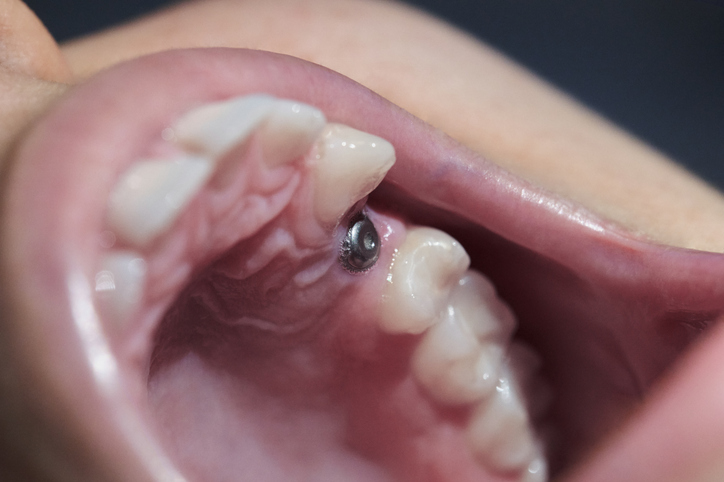What Are Dental Implants?
Dental implants are advanced, artificial tooth roots that provide a sturdy foundation for fixed or removable replacement teeth. They are designed to blend seamlessly with your natural teeth, offering a permanent solution for individuals who have lost one or more teeth due to injury, periodontal disease, or other dental issues.
The single dental implant system consists of three main components:
- Implant Fixture: A small, titanium post that is surgically placed into the jawbone, acting as the tooth root.
- Abutment: A connector that is placed on top of the implant fixture, serving as a base for the replacement tooth or crown.
- Dental Crown: The custom-made tooth restoration that attaches to the abutment, designed to match the shape, size, and color of your natural teeth.
We utilize the state-of-the-art iTero scanner for all our dental services, ensuring precise, efficient, and comfortable scanning for optimal results.
How long after extraction can I get dental implants ?
Typically, a period of three to six months is required for proper healing and jawbone regeneration after tooth extraction. During this time, the jawbone heals and integrates, ensuring the implant can be securely placed later.
Enquire now
What is Dental Implant Procedure ?
What are the benefits of Dental Implants ?
Dental implants provide numerous advantages over traditional tooth replacement options, including:
Natural Appearance: Implants are crafted to look and function like your natural teeth. As a result, they integrate seamlessly with your smile, providing a more aesthetic solution.
Enhanced Functionality: Dental implants restore your ability to chew and speak confidently. Unlike removable dentures, implants eliminate discomfort and instability, enhancing your overall oral function.
Preservation of Jawbone: The titanium post stimulates the jawbone, preventing the bone loss that typically follows tooth loss. This process helps preserve your facial structure and prevents sagging over time.
Long-Lasting Solution: With proper care and maintenance, dental implants can last for many years—often for a lifetime. Therefore, they present a cost-effective investment in your long-term oral health.
Improved Oral Health: Unlike traditional bridges that require the alteration of surrounding teeth, dental implants do not affect nearby healthy teeth. As a result, they help preserve your overall dental health.
When is it too late to get a tooth implant ?
Caring for Your Dental Implants
After receiving dental implants, maintaining good oral hygiene is crucial to ensuring their longevity:
Daily Oral Hygiene: Brush and floss your teeth regularly, with special attention to the areas around the implant to keep them clean and free from plaque buildup.
Regular Dental Check-Ups: Schedule routine dental examinations and professional cleanings to monitor the health of your implants as well as the surrounding teeth.
Avoid Smoking: Smoking can hinder the healing process and negatively impact the success of your dental implants. Therefore, refraining from smoking will help ensure optimal results.


















